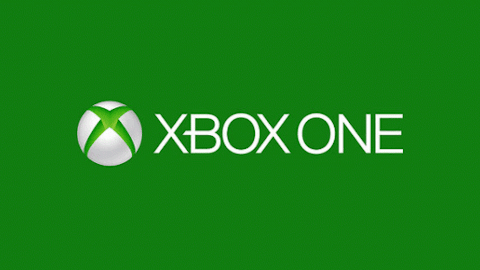Kudos to Best Buy Co., Inc. (NYSE:BBY)‘s management for leaving no stone unturned in revamping the company’s operations. The world’s largest consumer electronics retailer has been struggling in the face of growing competitive pressure from online retailers and big discount stores.
But, with the new management infusing life into the business with operation “Renew Blue,” the story is changing, and it’s having an impact on the stock price as well. The stock has grown by an incredible 123% since the start of the year and is still cheap, assuming the turnaround continues. Let us look at Best Buy’s biggest bets.
Forming strategic alliances
One of the foundation stones of Best Buy Co., Inc. (NYSE:BBY)’s turnaround plan is to provide more space to fast-selling, high-margin products. So, the retailer’s store-within-a-store concept gives exclusive selling space to key brands.
Apple Inc. (NASDAQ:AAPL) has had its ‘shops’ within Best Buy for years now. Recently, there have been two important deals, one with Samsung toward end April and one few days back with Microsoft Corporation (NASDAQ:MSFT).
The Samsung shops will be featured in over 1,400 Best Buy stores. Roll-out is already complete in 525 large-format stores and 390 standalone mobile stores. The rest should be up and running by the end of summer.
These shops will sell all kinds of Samsung gadgets from phones, to laptops, to tablets and accessories, and there will be Samsung consultants to help shoppers in making their purchase decisions. Best Buy Co., Inc. (NYSE:BBY) may allocate as much as 460 square feet in a single store toward these shops.
The recent Microsoft deal is even bigger. As part of this, ‘Windows Stores’ will be rolled out in 500 U.S. stores and 100 Canadian stores. The size of these shops would vary from 1,500 to 2,200 square feet. They will sell Microsoft hardware and software, and as many as 1,200 new staff members will be hired by Best Buy and trained by Microsoft to support the initiative.
It is not just Best Buy Co., Inc. (NYSE:BBY) alone that is benefiting from these alliances. Microsoft, for example, has an equally large stake in this venture. The world’s largest software maker is challenged by falling PC sales, which slipped 14% during the first quarter, according to researcher IDC, amid growing popularity of smartphones and tablets.
The sales of newly launched Windows 8 have also been tepid. During the first quarter, excluding the impact of sales from past quarters, Windows sales were flat. This is where the Best Buy deal can help Microsoft improve its visibility to customers and help it showcase its products, including the recently-launched Surface tablet.
End of ‘showrooming’
For ages, Best Buy Co., Inc. (NYSE:BBY) has been a victim of what is known as ‘showrooming,’ where people would go to stores to check out products, use their smartphones to compare prices at online stores like Amazon.com, Inc. (NASDAQ:AMZN), and ultimately complete their purchases online. But, not any more.
Since March of this year, the company has started matching prices of not only local retailers, but also that of 19 online retailers, including Amazon. This definitely has had an effect on gross margins, which slipped to 23.1% in the first quarter from 24.9% last year. This move was much needed.
The company can make up on the profits front through cost-cutting, providing more selling space to high-margin products, and other strategies, but for business lost there is no compensation.
It is also significant that rival, Target Corporation (NYSE:TGT), matches prices for only five online retailers. Although those five include the two that matter most, Amazon.com, Inc. (NASDAQ:AMZN) and Wal-Mart Stores, Inc. (NYSE:WMT), this gives Best Buy more competitive advantage. So, if consumers want to match prices with Apple.com or HomeDepot.com, the destination would be Best Buy, not Target.
The permanent price strategy would be quite important for Target as well, given that its customer base primarily consists of lower income groups who are still hesitating to open their wallets.
The company has already received a beating in the first quarter, with a 29% drop in first quarter earnings to $498 million and 1% drop in revenue to $16.71 billion, mostly on account of poor weather. Target will need to gather its forces if it has to satisfy analysts, who are expecting a 2.2% increase in annual sales.
Boosting e-commerce
Best Buy Co., Inc. (NYSE:BBY) has, so far, not leveraged the full potential of its e-commerce platform. Years of under-performing investments have created a big gap in this area. To remedy the situation, management is deploying sophisticated search engine marketing tools, increasing its investment in paid search results. It is also increasing affiliate marketing and improving product recommendation capability.
The results have started trickling in and domestic online sales were up 16% during the first quarter. The company currently ranks as the 10th largest e-commerce retailer in the U.S., and the current improvements pave the way for huge future returns.
Best Buy is trying to create an omnichannel retail experience for its customers through consistent presence in mobile, tablet, and web platforms. The company has also added ship-from-store capability for fulfilling online orders because it was often losing out on account of the online merchandise being out of stock at distribution centers.
What else?
Best Buy Co., Inc. (NYSE:BBY) is looking at all possible avenues to increase its operating efficiency. It has divested its 50% stake in Best Buy Europe to its joint venture partner, Carphone Warehouse, for about $775 million. This will allow it to concentrate on its core North American operations, improve ROIC, and the cash will come in handy for its growth initiatives.
Additionally, the company is negotiating rent agreements, closing unprofitable stores, and lowering its SG&A expenses. It is targeting $400 million in savings by optimizing SG&A expenses alone, and has already achieved $295 million of this.
Conclusion
Best Buy has done well to identify its loose ends and has made strategic decisions to tie them up. The new tie-ups with big brands, competitive pricing, and e-commerce thrust are likely to attract more sales, while cost-reduction and other optimization plans will provide support to the bottom-line. These strategies may take some time to yield full benefits, but when they do there could be a dramatic paradigm shift.
The brick-and-mortar versus e-commerce battle wages on, with Best Buy Co., Inc. (NYSE:BBY) caught in the middle. After what might have been its most tumultuous year in history, there are now even more unanswered questions about the future for the big-box electronics retailer.
The article Give This Electronics Retailer a Chance originally appeared on Fool.com and is written by Eshna De.
Eshna De has no position in any stocks mentioned. The Motley Fool owns shares of Microsoft. Eshna is a member of The Motley Fool Blog Network — entries represent the personal opinion of the blogger and are not formally edited.
Copyright © 1995 – 2013 The Motley Fool, LLC. All rights reserved. The Motley Fool has a disclosure policy.






